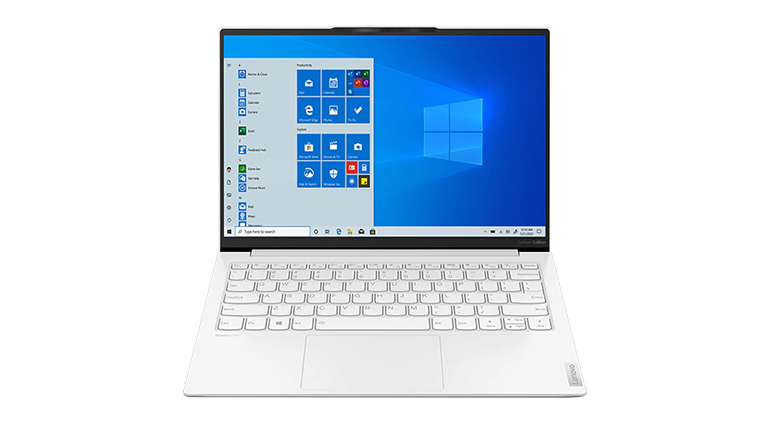'ZDNET Recommends': What exactly does it mean?
ZDNET's recommendations are based on many hours of testing, research, and comparison shopping. We gather data from the best available sources, including vendor and retailer listings as well as other relevant and independent reviews sites. And we pore over customer reviews to find out what matters to real people who already own and use the products and services we’re assessing.
When you click through from our site to a retailer and buy a product or service, we may earn affiliate commissions. This helps support our work, but does not affect what we cover or how, and it does not affect the price you pay. Neither ZDNET nor the author are compensated for these independent reviews. Indeed, we follow strict guidelines that ensure our editorial content is never influenced by advertisers.
ZDNET's editorial team writes on behalf of you, our reader. Our goal is to deliver the most accurate information and the most knowledgeable advice possible in order to help you make smarter buying decisions on tech gear and a wide array of products and services. Our editors thoroughly review and fact-check every article to ensure that our content meets the highest standards. If we have made an error or published misleading information, we will correct or clarify the article. If you see inaccuracies in our content, please report the mistake via this form.
Lenovo Yoga Slim 7i Carbon, hands on: A compact sub-1kg ultraportable


Lenovo Yoga Slim 7i Carbon
pros and cons
- Compact and lightweight
- Solid build quality
- Distinctive look
- No fingerprint reader
- Disappointing battery life
Lenovo's 13.3-inch Yoga Slim 7i Carbon is a compact and lightweight Intel Evo-branded laptop with a mid-range price tag. There are two configurations available in the UK. My review unit was a £999.99 (inc. VAT) model that runs on an Intel Core i7-1165G7 processor with 16GB of RAM and 512GB of SSD storage. Those on a tighter budget can opt for the £899.99 model with a Core i5-1135G7 CPU, 8GB of RAM and a 256GB SSD, although the £100 uplift does buy you what looks, on paper, to be a much more capable machine. The Yoga Slim 7i Carbon is not currently available in the US.
The Moon White carbon fibre chassis won't appeal to everyone, but it's certainly distinctive. It's tough, too: Lenovo says the Yoga Slim 7i Carbon is "rigorously subjected to 9 military-grade tests", namely: altitude, high temperature, low temperature, temperature shock, humidity, sand and dust, vibration, shock and freeze-thaw. This laptop would certainly survive physically in a backpack without a protective sleeve, although you might want to use one in order to keep the chassis scratch-free.
The Yoga Slim 7i Carbon runs on 11th-generation Intel Core i5 or i7 processors with 8GB or 6GB of RAM and 256GB or 512GB of SSD storage. The 13.3-inch screen is a QHD (2560 x 1600) IPS panel, and the laptop weighs just under a kilogram.
The 13.3-inch screen makes for a small footprint of just 296.9mm wide by 208.55mm deep by 13.9-14.9mm. Lenovo says the weight starts at 966g (it weighed in on my kitchen scales at 978g), and it's a mystery why Lenovo has not made more of this: sub-1kg laptops remain a rarity.
The non-touch screen sits in what Lenovo calls 'micro-borders' (what's next -- 'nano-borders'?). The 3mm depth that Lenovo quotes only applies to the short edges; the upper long edge border is a little deeper -- I measured it at 4.5mm on the outer edges rising to 7mm in the centre to allow space both for the IR webcam and for an overhang that comes in handy when lifting the lid. The bottom bezel is deeper still at around 9mm. Still, the screen does sit neatly in its surround, and Lenovo quotes a 91% screen-to-body ratio (although we calculate it to be 82.9%).
The 16:10 aspect ratio is welcome, and the display's QHD (2,560 x 1,600, 227ppi) resolution means content looks crisp and clear. Outdoor working might be a problem though, as the maximum screen brightness is 300 nits. Unusually, the screen, which supports 100% of the sRGB gamut and 72% of NTSC, is matte rather than reflective.
We have no complaints about either the backlit keyboard or the touchpad, but a fingerprint reader would be welcome.
The Harmon Kardon stereo speakers are on the average side: they can pump out a high volume, but distortion is audible in the upper reaches.
The keyboard is a comfortable typing platform, although the keys aren't particularly bouncy. The touchpad is responsive and a decent size.
There are two USB-C Thunderbolt 4 ports, a further USB-C port that can be used for charging, plus a 3.5mm combo audio in/out jack. HDMI and USB-A connections would also have been helpful, as would a MicroSD card reader. The IR camera, which lacks a privacy cover, supports Windows Hello face authentication, but there's no fingerprint sensor.
Right side (top): USB-C, 3.5mm audio in/out, power. Left side (above): 2x USB-C/Thunderbolt 4.
Battery life left me somewhat nonplussed with the battery falling to 54% from a full charge after three hours of mainstream productivity use. That extrapolates to around 6.5 hours in total, which falls way short of Lenovo's claim of 13-15 hours.
SEE: Windows 11 upgrade: Five questions to ask first
Fortunately, fast charging with the 65W adapter is supported. This delivered a boost from 32% to 71% during a 45-minute charge. Still, for all its portability, this probably isn't the laptop to pick if you need all-day usage away from a mains power source.
Although it lacks a fingerprint sensor and offers mediocre battery life in its Core i7/16GB configuration, Lenovo's Yoga Slim 7i Carbon is a serviceable, lightweight and distinctive-looking 13-inch laptop.
RECENT AND RELATED CONTENT
Lenovo Yoga 9i (14-inch) review: High-quality 2-in-1 with 4K display and great audio
Lenovo ThinkPad X1 Titanium Yoga review: Very thin, light, premium-priced 2-in-1
What laptop should I buy, Windows or MacOS? Plus 10 more things to consider
Best 2-in-1 laptop 2021: Top hybrid notebooks
Best Windows laptop 2021: Top notebooks compared
Read more reviews
- Airthings View Plus, hands on: Smart but pricey air quality monitoring
- Fairphone 4 5G review: A sustainable smartphone for ethical consumers
- Apple MacOS Monterey (12.0.1) review: Productivity firmly back on the menu
- Amazon Kindle Paperwhite (2021) review: A classic, now modern, e-reader thanks to USB-C and wireless charging
- Google Pixel 6 Pro review: Google's best smartphone yet, but is it enough?